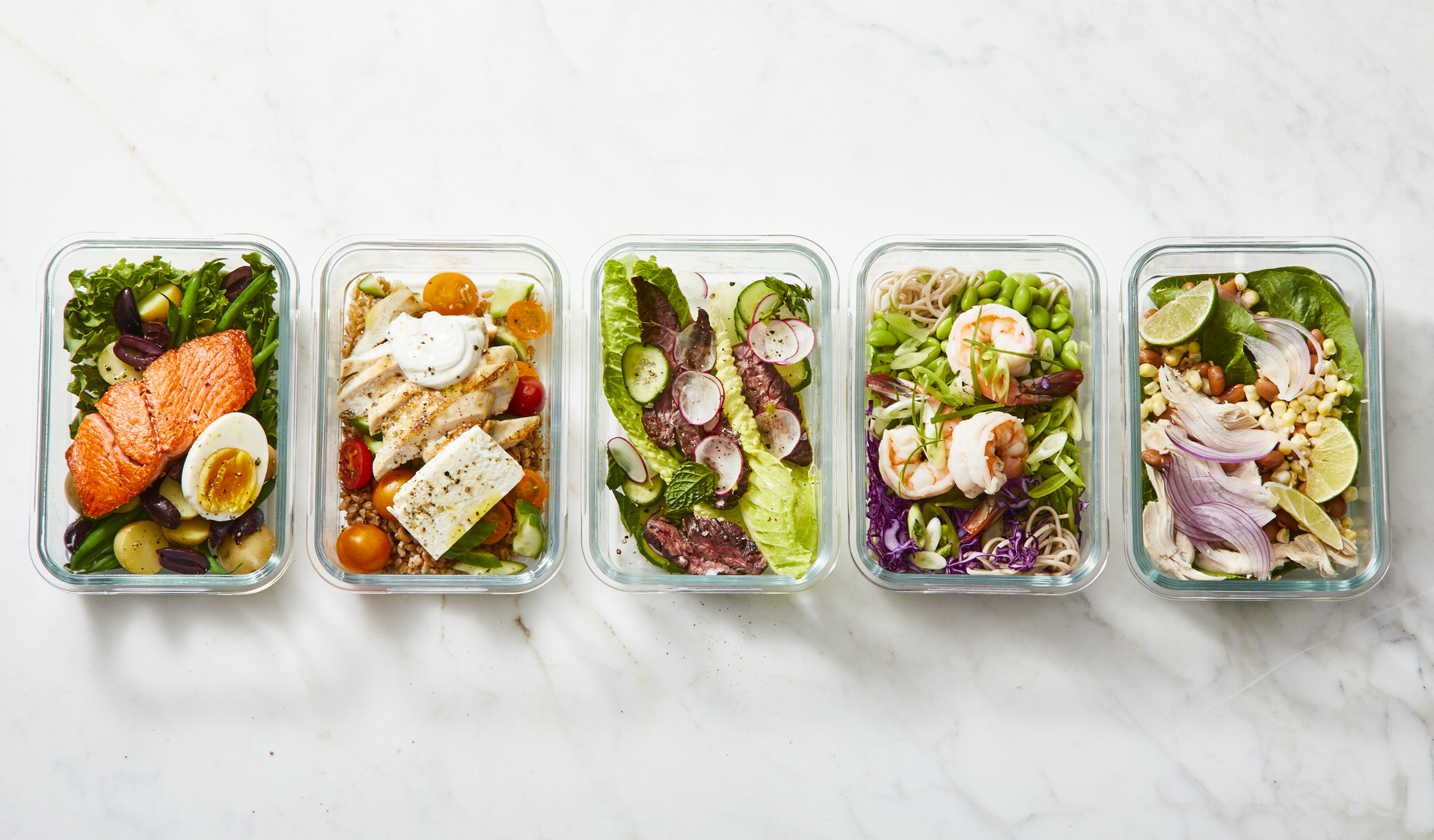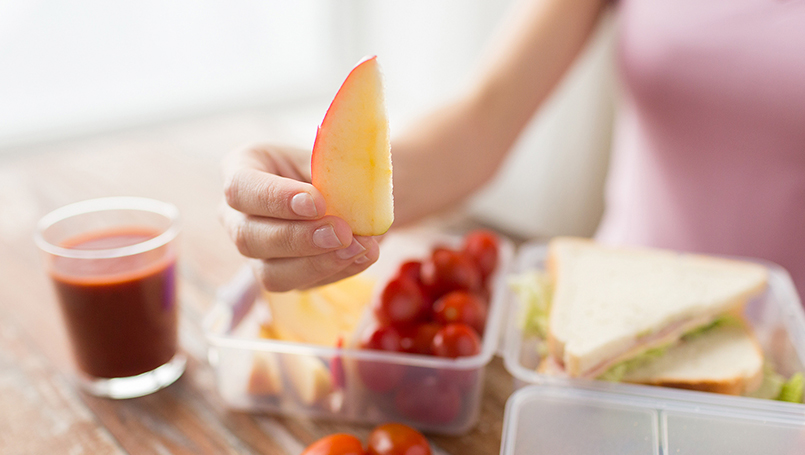Planning meals in advance is an effective way to control portions, prevent overeating, and promote mindful choices. By carefully selecting and preparing meals ahead of time, individuals can ensure a balanced nutrient intake, minimize impulsive decisions, and achieve their weight management goals.
Table of Contents
TogglePlanning meals in advance also allows for maximum room for healthy choices and nutritionally well-balanced meals. It saves time in the long run, prevents stress related to rushed preparation, and ultimately supports an overall more healthful lifestyle. Additionally, meal planning allows individuals to see how much they are eating and avoid overeating in restaurants, where portion sizes are often too big.
With the benefits of meal planning becoming more widely recognized, it is becoming a popular approach to improve nutrition and maintain a healthy weight.
Benefits Of Planning Meals In Advance
Planning meals in advance is a great way to control portions and maintain a healthy diet. By pre-planning meals, you can ensure that you are making mindful choices and preventing impulsive decisions, overeating, and imbalanced nutrient intake. Plus, you’ll find that meal planning saves you time and money in the long run.
Planning meals in advance offers several benefits. Firstly, it maximizes room for healthy choices and ensures a balanced nutrient intake. You can plan ahead to include all necessary food groups – proteins, carbohydrates, grains, etc. Secondly, meal planning promotes mindful choices and prevents impulsive decisions. When you plan your meals in advance, you are less likely to reach for unhealthy snacks or make last-minute food choices.
Thirdly, it prevents overeating. When you plan out your portions, you can avoid the temptation to eat more than you need. By controlling your portions, you can successfully maintain a healthy weight and ultimately achieve long-term weight loss goals. In conclusion, planning meals in advance can have a significant impact on your overall health and well-being.

Credit: www.goodhousekeeping.com
How To Plan Meals For Portion Control
Planning meals in advance can help with portion control. To ensure you are sticking to healthy choices and balanced nutrition, try using smaller plates, measuring your food, being selective with seconds, avoiding picking at leftovers, checking food labels, and asking for less. Using smaller plates can make portions appear larger while measuring food and being mindful with seconds can prevent overeating.
Avoiding picking at leftovers and checking food labels can prevent impulsive decisions and ensure balanced nutrient intake. Additionally, asking for less can help with calorie control and prevent waste. Remember, planning meals ahead of time can also save time and money, reduce stress, and contribute to an overall more balanced diet.
Health Benefits Of Meal Planning
Meal planning in advance can help control portions by promoting mindful choices, preventing impulsive decisions, preventing overeating, and ensuring a balanced nutrient intake. This can contribute to an overall more nutritionally balanced diet and aid in weight management. Planning meals also allows for maximum room for healthy choices and nutritionally well-balanced meals.
| Health Benefits of Meal Planning |
| Control over portion sizes |
| Planning meals in advance allows one to control portion sizes more effectively. When planning meals, it is easier to measure out the required portion sizes and stick to them, preventing overeating. This promotes mindful choices and prevents impulsive decisions, which can lead to overeating. |
| Saves money and time |
| Meal planning helps one save money and time since it involves buying ingredients in bulk, which is often cheaper, and cooking in batches, which saves time. Meal planning can also help reduce the amount of food waste by using up leftovers and reducing the need for takeout or eating out. This saves money in the long run. |
| Contributes to a more balanced diet |
| Meal planning helps one ensure that all meals are nutritionally balanced and include the necessary proteins, carbs, grains, etc. This is because one can plan ahead and consider all the necessary food groups required for a healthy and balanced meal. It also makes it easier to avoid unhealthy foods and snacks. |
| Reduces stress |
| Meal planning can reduce stress as one avoids last-minute decisions about what to eat or rushed preparation. Planning ahead means that one is prepared and has everything they need for their meals. This can lead to a more relaxed and stress-free meal experience. |

Credit: www.beaumont.org
Meal Prepping Tips
One of the easiest ways to control portions and maintain a healthy diet is by meal prepping. Use portion control containers to ensure you consume the right amount of food per meal. Plan your meals for the week ahead and batch cook to save time.
Proper food storage is also important to maintain the freshness and quality of your meals. With these meal prepping tips, you can make sure you’re fueling your body with the nutrients it needs without overeating.
| Tricks | Explanation |
|---|---|
| Use a smaller plate | A standard-sized portion will look small on a smaller plate, making you feel like you’ve had enough to eat. |
| Give measuring cups a go | Use measuring cups to portion out the right amount of food for each meal. This will help you keep track of the amount you’re consuming. |
| Be selective with your seconds | If you feel like going for seconds, make sure to choose healthy options that won’t add too many calories to your meal. |
| Check food labels | Make sure to read food labels to know the exact amount of calories, fat, and sugar in your food. |
| Ask for less | When eating out, ask for smaller portions or take half of your meal home to eat later. |
Healthy Meal Ideas
Planning meals in advance can help control portions and promote mindful choices, preventing impulsive decisions and overeating. Here are some healthy meal ideas:
- Breakfast options: Overnight oats with fruit, Greek yogurt with berries, avocado toast with eggs
- Lunch options: Grilled chicken salad, tuna sandwich with veggies, quinoa bowl with roasted veggies and hummus
- Dinner options: Grilled salmon with broccoli and sweet potatoes, stir-fry with chicken and veggies, roasted turkey breast with roasted Brussels sprouts
- Snack options: Apple slices with nut butter, veggies with hummus, roasted chickpeas
By planning meals in advance, you can ensure a balanced nutrient intake and maintain portion control to achieve your health goals.
Expert Tips
Planning meals in advance helps to control portions, promoting mindful choices and preventing overeating. With careful consideration of ingredients and portion sizes, meals can be nutritionally balanced and promote overall health.
| Expert Tips: | ||
| Consult a nutritionist for personalized meal plans |
|
|
Additional Resources
To control portions and prevent overeating, planning meals in advance is crucial. This promotes mindful choices, prevents impulsive decisions, and ensures a balanced nutrient intake. Additionally, using smaller plates and measuring cups can help control food portions.
- There are various meal planning apps available, which can assist in organizing and managing meals for a week or even a month.
- There are online recipe sources that can provide healthy meal options to include in the meal plan that meets nutritional requirements.

Credit: www.healthline.com
Frequently Asked Questions For Planning Meals In Advance Helps To Control Portions.
How Planning Meals In Advance Helps To Control Portions Brainly?
Planning meals in advance helps to control portions by promoting mindful choices preventing impulsive decisions, overeating, and ensuring a balanced nutrient intake. By planning ahead, you can make room for healthier choices and nutritionally balanced meals, ensuring that required proteins, carbs, and grains are met.
It also allows for time-saving and helps with weight control and stress reduction.
Why Do You Need To Plan Ahead When Preparing Meals?
Planning ahead when preparing meals is important because it allows you to make room for healthy and balanced meals, control portion sizes, and prevent impulsive decisions that may lead to overeating. By planning ahead, you can ensure that your meals provide the required nutrients and avoid last-minute decisions, which can increase stress and lead to unhealthy food choices.
How Do You Control Food Portions?
One way to control food portions is to plan meals in advance by using smaller plates, measuring cups, and being selective with seconds. This helps promote mindful choices and prevent overeating. Additionally, planning meals ahead of time can help ensure a balanced nutrient intake.
How Meal Planning Helps To Ensure Good Nutrition?
Meal planning helps to ensure good nutrition by promoting mindful choices, preventing impulsive decisions, preventing overeating, and ensuring a balanced nutrient intake. Planning meals in advance also helps to control portions, which ultimately leads to weight control and a more balanced diet.
Additionally, it can save time and reduce stress since you’ll avoid last-minute decisions about what to eat or rushed preparation. Ultimately, meal planning can contribute to an overall healthier lifestyle.
Conclusion
Planning meals in advance is a healthy and effective way to control portions and make mindful choices about what we eat. By having a plan, we can make sure our meals are well-balanced and nutritionally sound. Meal planning also saves time, reduces stress, and is an excellent way to achieve a healthy weight and overall well-being.
So, let’s take the time to plan our meals ahead, use smaller plates, measure our portions, and select healthy options. Our bodies will thank us for it!


